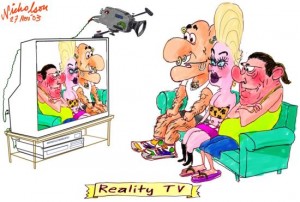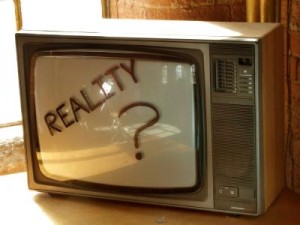Published in 1991, Douglas Coupland’s novel Generation X: Tales for an Accelerated Culture focused on the coming to late twenties maturity of Americans and Canadians in the late 1980s. The novel’s three main protagonists embark on a journey of self discovery, distancing themselves from the ferocious pace of a society overseen by the godless yuppie generation. In the same year, Bret Easton Ellis’ American Psycho hit bookshelves amid a furore of controversy. Ellis became the stereotype of the enfant terrible, and American Psycho became a test case for censorship. The New York Times Book Review urged the public to “snuff the book”. But despite the backlash, the text emerged as the key novel of Generation X. Ellis sought to fight the advance march of popular culture and rampant consumerism by satirising society while at the same time satirising the notion that the valuelessness of society will culminate in extreme behaviour. However successful Coupland and Ellis were in damning their postmodern present, the concept and values of Generation X had all but died out by 1995. Both novels were specific to a certain time and culture, though, having said that, the intended message they each set out to convey is still just as relevant today, perhaps more so than ever.
 Tuesday’s edition of Big Brother’s Little Brother ran a feature in which presenter George Lamb stated that, given the show is now in its tenth season, out there in the real world there is a whole generation of young people who do not know life without Big Brother. He called them Generation BB. The feature continued with a segment in which a handful of these Generation BBers were asked a series of questions relating to this year’s series. What possessed the producers to interview ten year old school children about a programme which contains strong language and explicit adult content is beyond Robocons’ comprehension, but what struck me the most when watching this bizarre piece of episode filler was the overall smug tone of what I saw. Of course, this is all just my opinion, but the fact that there is a section of society out there who “do not know life without Big Brother” is really not something that should be drawn attention to, let alone something to be proud of.
Tuesday’s edition of Big Brother’s Little Brother ran a feature in which presenter George Lamb stated that, given the show is now in its tenth season, out there in the real world there is a whole generation of young people who do not know life without Big Brother. He called them Generation BB. The feature continued with a segment in which a handful of these Generation BBers were asked a series of questions relating to this year’s series. What possessed the producers to interview ten year old school children about a programme which contains strong language and explicit adult content is beyond Robocons’ comprehension, but what struck me the most when watching this bizarre piece of episode filler was the overall smug tone of what I saw. Of course, this is all just my opinion, but the fact that there is a section of society out there who “do not know life without Big Brother” is really not something that should be drawn attention to, let alone something to be proud of.
So, if Bret Easton Ellis was the Generation X spokesperson, does that make Davina McCall the spokesperson of Generation BB?
 Or maybe that role goes to the faceless voice which emanates through the Big Brother house, commanding the warped toddlers to dance for their dinner, lest they face the ultimate punishment of being snatched from the brightly coloured pseudo womb, and thrust into the contemptuous gaze of the public. Either way, it’s a fairly grim state of affairs. The fantastical and ridiculous are now being marketed as “reality tv”, and such shows are serving no other purpose than to act as a distraction from larger social ills. In her latest instalment of regular Culch feature Why So Series, Lottie remarked that HBO’s outstanding series The Wire is true reality TV. And she’s right. There certainly isn’t anything realistic about locking people in a neon compound for three months. But shows like Big Brother are still being commissioned, and it’s indicative of the existing preoccupation with living only on the surface of experience. The same surface and superficiality that writers like Ellis satirised and rallied against.
Or maybe that role goes to the faceless voice which emanates through the Big Brother house, commanding the warped toddlers to dance for their dinner, lest they face the ultimate punishment of being snatched from the brightly coloured pseudo womb, and thrust into the contemptuous gaze of the public. Either way, it’s a fairly grim state of affairs. The fantastical and ridiculous are now being marketed as “reality tv”, and such shows are serving no other purpose than to act as a distraction from larger social ills. In her latest instalment of regular Culch feature Why So Series, Lottie remarked that HBO’s outstanding series The Wire is true reality TV. And she’s right. There certainly isn’t anything realistic about locking people in a neon compound for three months. But shows like Big Brother are still being commissioned, and it’s indicative of the existing preoccupation with living only on the surface of experience. The same surface and superficiality that writers like Ellis satirised and rallied against.
Last Monday marked the 60th anniversary of the publication of George Orwell’s Nineteen Eighty-Four. Though now, instead of Big Brother watching us, we’re watching Big Brother. 22% of people watching TV in Britain at the time tuned in for the launch show, making it the best rated terrestrial TV show during that time slot. Whether or not the ratings will remain as healthy during the course of the series remains to be seen, but it seems Generation BB live, breathe and will continue to throw their toys out of the cot as long as enough of us care to watch.







I’ve just grown so tired of “reality TV”. I didn’t get into the first few seires of BB but studentdom and a desire to do anything but study brought about a sickening relationship with the show that lasted on an off for about 3 years.
What started out as a social experiment lost sight of it’s goal pretty quickly. It’s now just a collection of the weirdest and freakiest sub-sets of society. It in no way refelcts “reallity” anymore. The most realistic series, for me was 3 (I think) where Kate Whatsherface won - but it was enver the same after that.
And the same goes for all those Skating on Britians got talent becuase it wants to be a Superstar celebrity showdowns - There is absoloutley nothing new or original about them anymore. I find it difficult to believe that there are so many people out there who watch the midless crap.
And finally a confession. I’ve never read Orwell’s 1984 - I must correct that. I have rad Ben Elton’s Chartthrob though - that one ended my interest in the X-Factor once and for all.
I hate that ice skating thing, i’m convinced someone’s going to get a finger chopped off. It’ unnerving.
Lottie I don’t think I can speak to you again until you read 1984.
@Rp - Finally!